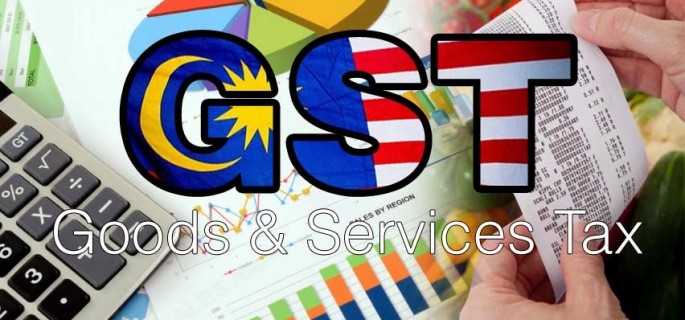Enhancing Your Singapore GST Registration: An Extensive Strategy
Enhancing Your Singapore GST Registration: An Extensive Strategy
Blog Article
Mastering GST Registration: Crucial Steps to Guarantee Regulative Conformity and Company Development
Browsing the world of Item and Services Tax (GST) registration can be a critical step for companies intending to preserve compliance and foster growth. The detailed procedure of registering for GST demands a keen understanding of the vital steps involved, from comprehending the essential principles of GST to carefully preparing the required paperwork. Beyond simply ticking off the governing checkboxes, grasping GST registration opens up a world of opportunities for companies to strategically utilize this tax obligation framework to propel their development. Comprehending the nuances of GST enrollment is not simply an administrative necessity yet a calculated relocation that can form the trajectory of a service towards lasting success.
Recognizing GST Basics
Comprehending the essentials of Goods and Solutions Tax Obligation (GST) is important for services to browse the complexities of tax compliance and economic monitoring efficiently. GST is a value-added tax imposed on the supply of items and services in India, aiming to produce a unified tax system throughout the nation. Singapore GST Registration. Under GST, organizations need to register and acquire a special GSTIN (Item and Provider Tax Identification Number) to be compliant with the legislation

Preparing Necessary Papers
To make sure compliance with GST enrollment needs, companies must collect and organize the necessary papers for the application process successfully. The crucial documents typically required for GST registration consist of proof of service registration or unification, PAN card of the identification, address and business proofs of marketers, photographs, financial institution declarations, and proof of address of the area of business.
Organizing these papers in a systematic way can simplify the application process and show business's commitment to governing compliance. Companies need to maintain both physical and electronic copies of these files for very easy access and recommendation. By preparing the needed records vigilantly, services can quicken their GST registration process and focus on their core procedures with the guarantee of regulatory compliance.
Online Registration Process
Begin the GST registration process by navigating to the main online site assigned for service registration. Once the account is established up, you can continue with filling up out the GST registration application form by entering the essential organization info, including business address, type, and turn over information.

Conformity and Reporting Commitments
Upon successful registration on the GSTN website and completion of the essential paperwork, businesses need to follow rigorous compliance and reporting commitments to make sure regulatory adherence and functional transparency. Conformity requirements under GST required prompt and get more precise declaring of different returns, such as GSTR-1 for exterior materials, GSTR-3B for month-to-month summary returns, and yearly returns like GSTR-9. Additionally, services need to resolve their sales and acquisition data with GSTR-2A and GSTR-2B to claim input tax credit scores appropriately.
Maintaining appropriate documents of invoices, accounting papers, and other appropriate information is crucial for GST compliance. Normal audits and assessments by tax authorities require organizations to have precise paperwork and reporting systems in area. Any inconsistencies or non-compliance can bring about penalties, fines, or even suspension of GST enrollment.
To simplify compliance processes, companies can utilize GST conformity software that automates return settlement, conformity, and declaring tracking. Staying updated with regulative adjustments and seeking professional guidance when required can additionally boost conformity initiatives and make certain smooth procedures within the GST structure.
Leveraging GST for Company Growth
Companies can tactically utilize the GST framework to drive lasting development and improve operational effectiveness (Singapore GST Registration). Leveraging GST for company growth involves greater than simply conformity; it provides an opportunity for companies to simplify procedures and enhance their financial operations. One vital benefit of GST is the input tax obligation credit rating device, which permits organizations to assert credit ratings for tax obligations paid on inputs. By successfully handling input tax obligation debts, business can decrease their overall tax obligation obligation and improve capital. Additionally, GST advertises transparency and liability in the tax system, which can help organizations develop count on with consumers and partners.
In addition, GST enrollment can also read this open up brand-new markets for services. Being GST-compliant can improve reputation and make it easier to increase operations across state boundaries. This not just increases market reach yet also cultivates an one-upmanship in the market. By lining up with GST laws, businesses can adapt to changing market dynamics and stay ahead of the competition. Basically, leveraging GST for service development entails strategic planning, efficient compliance, and a forward-looking method to monetary administration.
Conclusion
To conclude, understanding GST enrollment is vital for making certain governing compliance and helping with company growth. By recognizing the essentials of GST, preparing needed papers, completing the online enrollment process, and fulfilling conformity and reporting commitments, services can take advantage of GST to their advantage. It is crucial for companies to adhere to the regulations and make use of GST as a tool for expanding their procedures and staying competitive in the marketplace.
Browsing the realm of Item and Solutions Tax (GST) enrollment can be a critical action for services aiming to keep compliance and foster development. The essential documents normally needed for GST enrollment include evidence of company enrollment or consolidation, PAN card of the organization, address and identity proofs of marketers, photographs, financial institution statements, and evidence of address of the area of company.Start the GST registration procedure by browsing to the official online website designated for company enrollment. Once the account is set up, you can continue with filling out the GST registration application kind by entering the required organization information, including organization kind, address, and turnover details.
By understanding the fundamentals of her comment is here GST, preparing essential documents, completing the online registration procedure, and fulfilling compliance and reporting responsibilities, organizations can leverage GST to their advantage.
Report this page